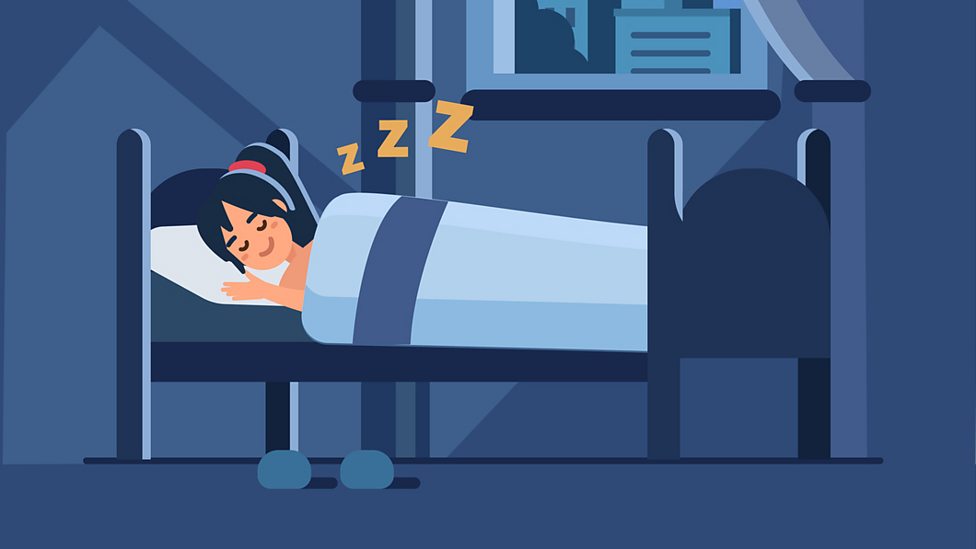Tips for Improving Sleep Quality: A Comprehensive Guide
In our fast-paced, always-connected world, sleep often takes a backseat to other demands. Yet, quality sleep is crucial for overall health and well-being. Sleep is when our bodies recover, our brains consolidate memories, and our immune systems get a boost. However, many people struggle to get the rest they need. This guide will explore practical and evidence-based tips for improving sleep quality, helping you wake up refreshed and ready to take on the day.
1. Understand Your Sleep Needs
Before diving into sleep improvement strategies, it’s essential to understand how much sleep you need. While the standard recommendation is 7-9 hours per night for adults, sleep needs can vary depending on factors like age, lifestyle, and individual differences. Here’s a general guideline:
- Newborns (0-3 months): 14-17 hours
- Infants (4-11 months): 12-15 hours
- Toddlers (1-2 years): 11-14 hours
- Preschoolers (3-5 years): 10-13 hours
- School-age children (6-13 years): 9-11 hours
- Teenagers (14-17 years): 8-10 hours
- Young adults (18-25 years): 7-9 hours
- Adults (26-64 years): 7-9 hours
- Older adults (65+ years): 7-8 hours
Identifying your optimal sleep duration can help you set a realistic bedtime and wake-up time.
2. Establish a Consistent Sleep Schedule
Your body has a natural sleep-wake cycle known as the circadian rhythm. Keeping a consistent sleep schedule, even on weekends, helps regulate this cycle, making it easier to fall asleep and wake up naturally. Try to go to bed and wake up at the same time every day. Consistency reinforces your body’s sleep-wake cycle, leading to better sleep quality.
Incorporating Rest and Relaxation into Daily Life: A Comprehensive Guide
3. Create a Relaxing Bedtime Routine
A bedtime routine signals to your body that it’s time to wind down. This routine should be calming and enjoyable, helping you transition from wakefulness to sleep. Here are a few ideas:
- Reading: A few chapters of a good book can help distract your mind from daily stresses.
- Bath or Shower: A warm bath or shower can relax your muscles and make it easier to drift off.
- Light Stretching or Yoga: Gentle movements can help relieve tension and prepare your body for sleep.
- Meditation or Deep Breathing: Practices like mindfulness meditation or deep breathing exercises can calm your mind and body, setting the stage for restful sleep.
Avoid stimulating activities before bed, such as intense exercise or engaging in stressful conversations.

4. Optimize Your Sleep Environment
Your sleep environment plays a critical role in how well you sleep. Consider the following factors to create an optimal sleeping space:
- Mattress and Pillows: Ensure your mattress and pillows are comfortable and supportive. If you wake up with aches and pains, it might be time to invest in new bedding.
- Room Temperature: Keep your bedroom cool, between 60-67°F (15-19°C), as a cooler room promotes better sleep.
- Lighting: Darkness signals your body that it’s time to sleep. Use blackout curtains, and an eye mask, or dim the lights as bedtime approaches.
- Noise: A quiet environment is essential for good sleep. If you can’t control external noise, consider using earplugs, a white noise machine, or a fan to drown out disruptive sounds.
- Electronics: Remove electronics like TVs, computers, and smartphones from the bedroom. The blue light emitted by these devices can interfere with your body’s production of melatonin, a hormone that promotes sleep.
5. Watch What You Eat and Drink
What you consume in the hours leading up to bedtime can significantly impact your sleep. Here are some dietary tips for better sleep:
- Avoid Large Meals Before Bed: Eating a heavy meal right before bed can cause discomfort and indigestion, making it harder to sleep. Aim to finish eating at least 2-3 hours before bedtime.
- Limit Caffeine and Nicotine: Both caffeine and nicotine are stimulants that can keep you awake. Avoid these substances, especially in the afternoon and evening.
- Be Cautious with Alcohol: While alcohol may initially make you feel drowsy, it can disrupt your sleep cycle later in the night, leading to fragmented sleep. Moderation is key.
- Stay Hydrated, But Not Too Much: Drinking enough water throughout the day is essential, but try to avoid large amounts of fluids in the evening to reduce the likelihood of waking up to use the bathroom.
6. Exercise Regularly
Regular physical activity can help you fall asleep faster and enjoy deeper sleep. However, the timing of your workouts can impact your sleep quality:
- Morning or Afternoon Exercise: Exercising earlier in the day is generally best for sleep. Physical activity raises your core body temperature, and it can take hours for it to drop back down to a level conducive to sleep.
- Evening Exercise: If evening workouts are your only option, opt for low-intensity activities like walking or gentle yoga, which are less likely to interfere with sleep.
Exercise also helps reduce stress and anxiety, both of which are common culprits of sleep disturbances.
7. Manage Stress and Anxiety
Stress and anxiety are two of the most common barriers to good sleep. If your mind races at night with worries or to-do lists, it’s time to adopt strategies for managing stress:
- Mindfulness Meditation: Regular mindfulness practice can help you stay present and reduce rumination, making it easier to sleep.
- Progressive Muscle Relaxation: This technique involves tensing and then slowly releasing each muscle group in your body, which can help reduce physical tension and promote relaxation.
- Journaling: Writing down your thoughts, worries, or a to-do list before bed can help clear your mind, making it easier to relax.
- Deep Breathing Exercises: Deep, slow breathing can activate your parasympathetic nervous system, which helps calm your body and prepare it for sleep.
If stress or anxiety regularly keeps you awake, consider speaking with a mental health professional.
8. Limit Naps During the Day
While napping can be a good way to catch up on sleep, especially if you didn’t sleep well the night before, it can also interfere with nighttime sleep. If you choose to nap, keep it short—no more than 20-30 minutes—and avoid napping late in the afternoon. Longer or later naps can make it harder to fall asleep at night.

9. Consider the Role of Natural Light
Exposure to natural light during the day can help regulate your circadian rhythm. Try to spend time outside in natural light, especially in the morning. If you work indoors, position your workspace near a window if possible, or consider using a light therapy box to mimic natural daylight.
In the evening, reduce your exposure to bright light, especially blue light from screens. This will help your body prepare for sleep by signalling that it’s time to wind down.
10. Use Sleep Aids with Caution
While sleep aids, whether over-the-counter or prescription, can be helpful in the short term, they are not a long-term solution to sleep problems. These medications can lead to dependence and may have side effects. If you’re struggling with chronic insomnia, it’s best to consult with a healthcare professional who can help you identify and address the underlying cause of your sleep issues.
Natural sleep aids, such as melatonin supplements, valerian root, or chamomile tea, can also be effective for some people. However, it’s important to use them under the guidance of a healthcare provider, as they can interact with other medications or conditions.
11. Be Aware of Your Sleep Patterns
Paying attention to your sleep patterns can help you identify factors that may be impacting your sleep quality. Consider keeping a sleep diary where you record:
- Bedtime and Wake-up Time: Note the time you go to bed and the time you wake up each day.
- Sleep Duration: Record how many hours of sleep you get each night.
- Sleep Quality: Rate the quality of your sleep on a scale from 1 to 10.
- Nighttime Awakenings: Note any instances of waking up during the night, including how long it took to fall back asleep.
- Daytime Sleepiness: Record any feelings of sleepiness or fatigue during the day.
Tracking your sleep patterns can help you identify trends and make adjustments to improve your sleep.
12. Address Any Underlying Health Issues
Certain health conditions, such as sleep apnea, restless legs syndrome, or chronic pain, can significantly impact sleep quality. If you suspect an underlying health issue is affecting your sleep, it’s important to seek medical advice. Treating these conditions can improve your sleep and overall health.
- Sleep Apnea: A condition where breathing repeatedly stops and starts during sleep. Symptoms include loud snoring, gasping for air during sleep, and excessive daytime sleepiness. Treatment may involve lifestyle changes, a CPAP machine, or surgery.
- Restless Legs Syndrome (RLS): A condition characterized by an uncontrollable urge to move the legs, usually due to discomfort. Symptoms often occur in the evening or nighttime hours. Treatment may include medications and lifestyle changes.
- Chronic Pain: Conditions like arthritis, fibromyalgia, or back pain can make it difficult to get comfortable and stay asleep. Managing pain through medication, physical therapy, or other treatments can improve sleep quality.
13. Avoid Heavy Use of Technology Before Bed
The use of technology, particularly devices that emit blue light, can interfere with sleep. Blue light exposure in the evening can suppress the production of melatonin, the hormone that regulates sleep. Here are some tips to reduce the impact of technology on your sleep:
- Set a Technology Curfew: Aim to turn off all electronic devices at least 30 minutes to an hour before bed.
- Use Blue Light Filters: Many devices have settings or apps that reduce blue light emission during evening hours.
- Read a Book Instead: Instead of scrolling through your phone or watching TV, try reading a physical book or listening to calming music.
- Keep Devices Out of the Bedroom: Charge your devices outside the bedroom to minimize the temptation to check them during the night.
14. Prioritize Sleep in Your Daily Routine
In today’s busy world, it’s easy to prioritize work, social activities, and other responsibilities oversleeping. However, consistently sacrificing sleep can have long-term consequences for your health. Here’s how to make sleep a priority:
- Set Boundaries: Create boundaries around your work and social life to ensure you have time to wind down and sleep.
- Practice Time Management: Plan your day in a way that allows you to complete tasks without cutting into your sleep time.
- Recognize the Value of Sleep: Remind yourself that getting enough sleep is essential for your productivity, mood, and overall well-being.
15. Seek Professional Help if Necessary
If you’ve tried various strategies and still struggle with sleep, it may be time to seek professional help. A sleep specialist can help diagnose sleep disorders and develop a treatment plan tailored to your needs. Some signs that you may need professional help include:
- Chronic Insomnia: Difficulty falling asleep, staying asleep, or waking up too early at least three times a week for three months or longer.
- Excessive Daytime Sleepiness: Feeling excessively tired during the day despite getting enough sleep at night.
- Snoring or Breathing Problems: Loud snoring, gasping, or choking during sleep may indicate sleep apnea or another sleep disorder.
16. Embrace Mindful Sleep Practices
Incorporating mindfulness into your sleep routine can enhance your sleep quality. Mindfulness involves focusing on the present moment without judgment, which can help reduce stress and promote relaxation. Here are some mindful practices to consider:
- Mindful Breathing: Focus on your breath, taking slow, deep breaths to calm your mind and body.
- Body Scan Meditation: Gradually focus on each part of your body, starting from your toes and moving up to your head, noticing any tension and consciously relaxing each area.
- Mindful Listening: Listen to soothing sounds, such as nature sounds or gentle music, to help you relax and drift off to sleep.
17. Be Patient and Persistent
Improving sleep quality often requires making changes to your habits and routines, and it may take time to see results. Be patient and persistent, and give your body time to adjust to new sleep practices. Remember that small, consistent changes can lead to significant improvements in your sleep over time.

18. The Importance of a Sleep Journal
Keeping a sleep journal can be a valuable tool in understanding your sleep patterns and identifying factors that may be affecting your sleep quality. In your journal, record details such as your bedtime, wake-up time, any nighttime awakenings, and how you felt upon waking. Over time, you may notice patterns that can help you make adjustments to improve your sleep.
19. Consider Sleep Supplements with Caution
Some people turn to supplements to help improve their sleep. While supplements like melatonin, valerian root, and magnesium can be helpful for some, it’s important to use them with caution and under the guidance of a healthcare professional. Supplements can interact with medications or underlying health conditions, so it’s essential to discuss them with your doctor before use.
20. The Power of Visualization
Visualization is a technique that can help you relax and fall asleep more easily. It involves imagining a peaceful, relaxing scene in your mind, such as a beach, forest, or mountain setting. Focus on the details of the scene, including the sounds, smells, and sensations. This technique can help distract your mind from stress and worries, making it easier to drift off to sleep.
Improving sleep quality is essential for your overall health and well-being. By understanding your sleep needs, establishing a consistent sleep schedule, creating a relaxing bedtime routine, and making adjustments to your sleep environment, you can significantly enhance your sleep quality. Additionally, managing stress, exercising regularly, and being mindful of your diet and technology use can further support restful sleep. Remember, making small, consistent changes can lead to significant improvements over time. If you continue to struggle with sleep despite trying these strategies, don’t hesitate to seek professional help. Prioritizing sleep is an investment in your long-term health, productivity, and happiness.




Post Comment